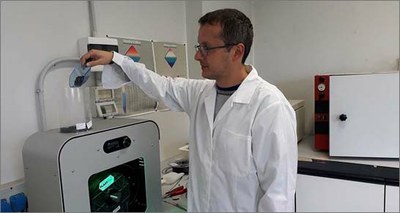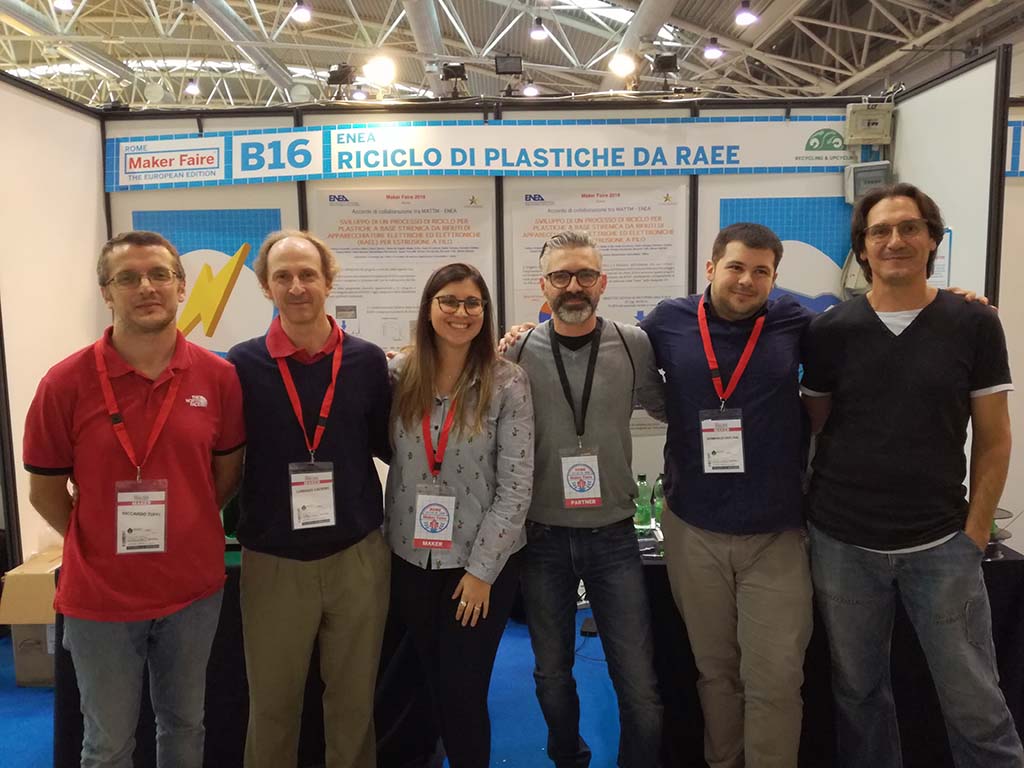Waste and recycling: "Toner" for 3D printers from plastic of electronic devices
3/10/2019
 ENEA has developed a process to produce a filament to be used as “toner” for 3D printers by exploiting the plastic present in electrical and electronic equipment (WEEE) waste, with lower costs than commonly used commercial filaments and environmental benefits resulting from the economic exploitation of waste. It’s the outcome of a two-year project conducted by ENEA as part of a collaboration agreement with the Ministry of the Environment and Protection of the Territory and Sea[1], which aims at finding a green and more profitable alternative to the polymer most commonly used as a power supply wire for 3D printers, namely virgin acrylo-butadiene styrene (ABS), with a selling price between 20 and 50 € / kg.
ENEA has developed a process to produce a filament to be used as “toner” for 3D printers by exploiting the plastic present in electrical and electronic equipment (WEEE) waste, with lower costs than commonly used commercial filaments and environmental benefits resulting from the economic exploitation of waste. It’s the outcome of a two-year project conducted by ENEA as part of a collaboration agreement with the Ministry of the Environment and Protection of the Territory and Sea[1], which aims at finding a green and more profitable alternative to the polymer most commonly used as a power supply wire for 3D printers, namely virgin acrylo-butadiene styrene (ABS), with a selling price between 20 and 50 € / kg.
Polymers account for more than 50% of the weight of the plastic present in WEEE and are still largely destined for energy recovery, landfills or as an alternative to selling at very low cost (0.1-0.25 € / kg). For these reasons, the availability of coils at a lower cost than those produced with virgin ABS is an advantage for consumers, also considering the incresingly expanding market and the multiple applications of additive manufacturing, from toys to fixing objects, from prototypes to satellites to the construction of housing units.
"We have created 3D wires and prototypes with different types of WEEE plastics that have shown a quality equivalent or similar to those made by commercial filaments", Riccardo Tuffi of ENEA pointed out.
"We are also studying the development of a protocol for the identification of WEEE plastics suitable for the development of the application on an industrial scale", Lorenzo Cafiero of ENEA, collaborating on the project with Tuffi, said.
Thanks also to the collaboration of two WEEE treatment plants, the undergoing experimentation will allow to evaluate the emission of volatile organic substances resulting from the printing process, both for recycled plastics and for commercial wires, with the purpose of studying the addition of additives to confer particular characteristics to the plastic and, in perspective, develop wires for 3D printing with advanced composite materials with high electrical and thermal conduction capacities, for applications with high technological content.
The result is part of the current regulatory framework[2] which require from 75 to 85% by weight of a WEEE device to be used or recycled
ENEA has decided to allocate part of the 5 per thousand tax donation of current- year tax returns to the design and construction of a prototype wire production line for 3D printing from recycled plastic. To devolve your 5 per thousand to this project add your signature to the box for funding scientific research on the tax return models for natural persons and indicate the ENEA tax code: 01320740580.

For more information please contact:
Riccardo Tuffi – ENEA, Laboratory of Technologies for Reuse, Riciclo, Recovery and Valorisation of Waste and Materials, riccardo.tuffi@enea.it
Lorenzo Cafiero – ENEA, Laboratory of Technologies for Reuse, Recycle, Recovery and Valorisation of Waste and Materials , lorenzo.cafiero@enea.it
[1] “Development of techniques for the valorisation of waste and actions in support of the Italian participation at international and European tables on these topics
